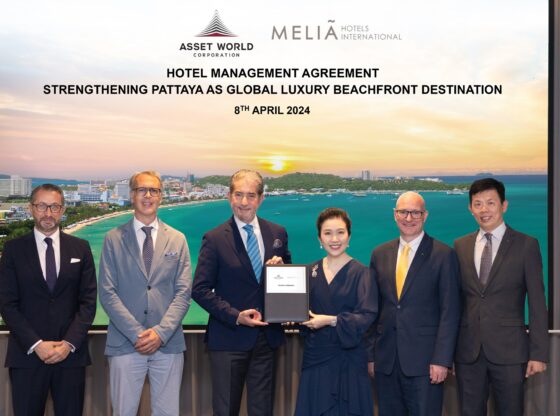![]()
Chu-chu-chu-chu-Changes!
New laws set to be imposed on May 1st will bring major changes to Thailand’s property sector.
ThailandPropertyNews.com was the first to reveal this back in January. However, since then, little further has been said.
The Law will deem residential property leasing as a ‘Controlled-Business’ said the Government Gazzette.
Law firm Tileke & Gibbins have released a little clarification and more details on this.
http://tilleke.com/resources/new-contract-controls-introduced-residential-property-leasing-businesses-thailand
A controlled-business is intended to ensure contracts contain all necessary terms and conditions preventing tenants being unreasonably disadvantaged.

The notification defines
A “residential property leasing business” as a business that leases (or subleases) five units of property or more to individual lessees, for residential purposes, in exchange for a fee collected by the business operator, regardless of whether or not the units are in the same building.
The changes are not only very prevalent for landlords that own or rent five or more properties but also for their tenants.
1.Residential lease agreements must include a version in Thai, and must contain the following details:
(a)The name and address of the business operator and its authorised person;
(b) The name and address of the lessee;
(c) The name and location of the property;
(d) Details of the property’s physical condition, including any items and equipment in the property;
(e) Term of the lease, specifying its commencement date and expiration date;
(f) Rental fees, and due dates for payment;
(g) Public utility fee rates, and due dates for payment;
(h) Service fee rates, which must be reasonable and at the actual cost paid for the services, and due dates for payment;
(i) Other fees and expenses (if any), which must be reasonable and at the actual cost paid, and due dates for payment;
(j) The amount of security deposit.
2. Invoices for the fees in items (f)-(i) above must be sent to the lessee at least seven days before their due dates, and the lessee will have the right to check information related to the payments shown in the invoices.
3. Details of the physical condition of the property and equipment (if any), inspected and acknowledged by the lessee, must be attached to the lease agreement, and a duplicate must be delivered to the lessee.
4. The security deposit must be immediately returned to the lessee at the end of the agreement, unless the business operator has to investigate any damage to ascertain whether or not it is the responsibility of the lessee. If the lessee is found not to have caused such damage, the security deposit must be returned within seven days from the end of the agreement and the business operator retaking possession of the property. The business operator is also responsible for any expenses incurred in returning the security deposit to the lessee.
5. The lessee has the right to terminate the lease agreement early, provided that at least 30 days’ advance written notice is given to the business operator.
6. Any material breach for which the business operator can terminate the agreement must be clearly written in red, bold, or italic font. The business operator can only terminate the agreement if written notice has been given to the lessee to rectify the breach within 30 days of receipt and the lessee fails to do so.
7. The agreement must be made in duplicate, one of which must be given to the lessee immediately upon execution.
Under section 35 of the Consumer Protection Act, any residential lease agreement which does not contain the required terms above shall be interpreted to include them as implied terms.
Residential lease agreements must not contain
1. Any waiver or limitation of the business operator’s liability from its breach of agreement or wrongful acts.
2. Any advance rental fee equivalent to more than one-month’s rent.
3. Any term allowing the business operator to change the rental fees, public utilities fees, service fees, or any other expenses before the end of the agreement.
4. Any security deposit of more than one-month’s rental fee.
5. Any term allowing the business operator to confiscate the security deposit or advance rental fee.
6. Any term allowing the business operator or its representatives to inspect the property without prior notice.
7. Any stipulation of electricity and water supply fees exceeding the rates specified by the relevant authorities.
8. Any term allowing the business operator to prevent or obstruct the lessee’s access to the property to seize or remove the lessee’s belongings if the lessee defaults on rental fees or other expenses related to the lease of the property.
9. Any term allowing the business operator to request any fee or expense for renewing the lease.
10. Any term allowing the business operator to terminate the agreement early other than for a material breach of the lease agreement by the lessee.
11. Any term making the lessee liable for damages incurred due to ordinary wear and tear from usage of the property’s contents and equipment;
12. Any term making the lessee liable for damage to the property, contents, and equipment that was not the lessee’s fault and in force majeure situations; and
13. Any term making the lessee liable for defects to the property, contents, and equipment incurred due to ordinary wear and tear through usage.

Also, under section 35 of the Consumer Protection Act, a residential lease agreement that includes any of the prohibited terms above shall be interpreted as not including them.
Any business operator who fails to meet the above requirements may be subject to imprisonment not exceeding one year and/or a fine not exceeding THB 100,000 (section 57 of the Consumer Protection Act).
This advice was published by Tilleke & Gibbins’ Chaiwat Keratisuthisathorn.
ThailandProperty.News summary of the important points
1) This new legal development will only apply to residential property landlords with five or more properties. Given the passion for property investment in Thailand, we know there will be a considerable number of Thai landlords affected by this development.
2) As a tenant you should request an English version of your tenancy agreement, even though the need for a Thai language one is specified. If it’s a translation, remember that it will only be as good as the translator’s skills.
3) Landlords are prevented from charging more for basic utilities than they actually cost.
4) Landlords can only request one-month in advance rental payment and one-month as a security deposit. Currently almost every rental requires two-months as security and one-month rent in advance.
5) Wear and tear cannot be used as a reason to not return any deposit, which also must be returned within seven days.
6) Even when signing a one-year agreement, or longer, tenants have the right to leave giving 30 days’ notice. No more “take over my lease” listings in these cases, we think.
7) Landlords can still inspect their property during an any rental period, but not without advance notice












